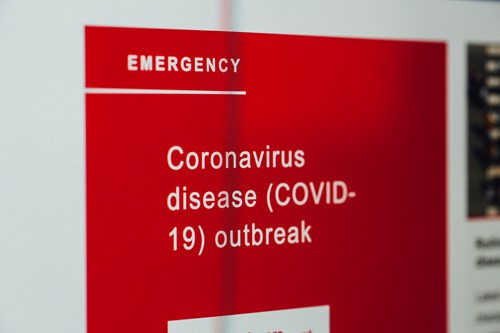COVID-19 continues to dominate headlines in the wake of President Trump’s diagnosis and hospitalization. Here’s a roundup of the latest news.

Fauci offers bleak prediction about death toll if U.S. fails to take necessary precautions
As many as 400,000 Americans could die from COVID-19 if United States citizens fail to take proper precautions in the fall and winter, Anthony Fauci, M.D., said on Tuesday during a virtual event held by American University. Fauci, director of the National Institute of Allergy and Infectious Diseases, said as a nation we need to double down on social distancing, wearing masks, washing hands, and avoiding large indoor gatherings as we head into the cold weather months. The United States has surpassed 7.5 million confirmed cases of the coronavirus and 211,844 deaths, according to the latest tracking model of Johns Hopkins University of Medicine. Most states have seen a rise in cases in the last week. In Wisconsin, cases have more than doubled over the past month and in northern regions of the state, hospitalizations have quadrupled, USA Today reported. Overall, cases in the United States have been rising for the last three weeks with the country adding 44,000 cases per day during that time, according to the publication.
Trump returns to Oval Office after COVID hospitalization but more staffers sick
Days after his discharge from Walter Reed National Military Medical Center for treatment of COVID-19, President Trump has returned to work. In a memo released Wednesday Trump’s physician said he was symptom-free for 24 hours. However, the White House has yet to disclose when he last tested negative for the deadly virus and physicians say seven to 10 days after the diagnosis are most critical. During his hospital stay, Trump received several treatments, including Remdesivir, the intravenous antiviral medication, and a single dose of Regeneron's experimental antibody cocktail. That experimental treatment has shown positive results in a small trial of 275 patients but has not yet received emergency use authorization from the Food and Drug Administration. Trump was given the treatment after Regeneron received a “compassionate use” request from the president’s doctors. The cost of Trump’s hospitalization and treatment would cost most Americans, even those with health insurance, more than $100,000, Boston.com reported. Since Trump’s positive COVID diagnosis, at least 34 White House staffers and other contacts have tested positive for COVID-19 in recent days, according to an internal memo distributed to Federal Emergency Management Agency leaders and obtained by ABC News.
HHS renews public health emergency declaration
Alex M. Azar, secretary of the Department of Health & Human Services, on Friday reauthorized the declaration of a public health emergency due to COVID-19 for 90 days. The declaration allows providers and health plans to better respond to COVID-19 by taking advantage of flexibilities, including the waiving of telehealth restrictions and cost-sharing for COVID-19 tests. Azar initially declared that a public health emergency exists on January 27 and has renewed it twice before on April 21 and July 23. The latest renewal will cover Oct. 23 to January 21, 2021.
NEJM issues scathing editorial against Trump’s handling of COVID-19
Meanwhile, the New England Journal of Medicine on Wednesday published an unprecedented editorial that blasts the Trump administration’s handling of the epidemic. It is the first time the prestigious medical journal has published an editorial about elections. The magnitude of the failure in leadership is astounding, the editors wrote. “COVID-19 has created a crisis throughout the world. This crisis has produced a test of leadership…Here in the United States, our leaders have failed that test. They have taken a crisis and turned it into a tragedy,” they wrote. Although the editors did not officially endorse a candidate for the upcoming presidential election, they ended the piece by stating that our current political leaders have demonstrated they are dangerously incompetent when it comes to the response to the largest public health crisis of our time. “We should not abet them and enable the deaths of thousands more Americans by allowing them to keep their jobs,” concluded the editorial.
